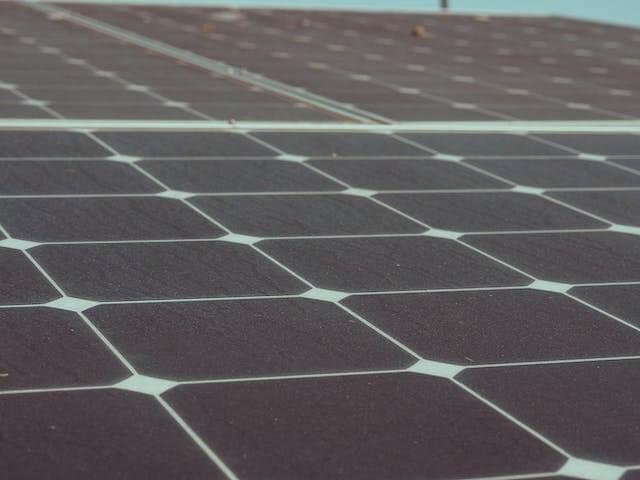1. Introduction:
Blessed with a distinctive biodiversity, Lord Howe Island, situated between Australia and New Zealand in the Tasman Sea, is recognized as a UNESCO World Heritage Site. The goal of the Lord Howe Island Solar Hybrid Project is to integrate solar electricity with pre-existing infrastructure to lessen the island's dependency on diesel fuel for energy generation. This initiative demonstrates how isolated places like Lord Howe Island can be when it comes to innovation and sustainability.
Particularly in remote locations like islands, sustainable energy solutions are essential for lowering carbon emissions and lessening the effects of climate change. In addition to reducing reliance on fossil fuels, the switch to renewable energy sources helps communities like Lord Howe Island maintain long-term energy security and conserve the environment. These programs are crucial milestones in creating a future that is more sustainable for locals as well as for ecosystems around the world.
2. Project Goals and Objectives:
The Lord Howe Island Solar Hybrid Project's principal objective was to lessen the island's dependency on diesel generators for electricity production. Through the use of solar energy, the project sought to improve energy sustainability and efficiency while reducing the island's carbon imprint. Increasing the island's use of renewable energy would encourage a move toward greener, more ecologically friendly energy sources. This was one of the main goals. The project aimed to improve the energy infrastructure of Lord Howe Island's long-term viability and environmental resilience through three goals.
3. Implementation Process:
In order to combine solar panels with conventional diesel generators, a complex system had to be designed for the Lord Howe Island Solar Hybrid Project. An extensive evaluation of the island's energy requirements and resource availability preceded the installation process. Engineers labored to develop a hybrid system that could effectively use solar energy and, in the event that diesel generators were required, provide dependable backup power.
During the project's execution phase, a number of difficulties emerged. Integrating the new solar system with the current power grid without interfering with the island's electrical supply was a major problem. The installation and transportation of equipment caused logistical challenges due to Lord Howe Island's remote position. Despite these difficulties, the project team worked with local stakeholders to find creative solutions, plan ahead, and overcome every impediment.
The Lord Howe Island Solar Hybrid Project's successful completion shows how sustainable energy solutions may be deployed even in unusual and difficult environments. In addition to improving energy stability, the combination of solar electricity and conventional diesel generating lowers carbon emissions and safeguards Lord Howe Island's unspoiled natural environment. Through the use of creativity and cooperation to overcome obstacles, this project serves as a model for future global renewable energy endeavors.
4. Environmental Impact:
The Lord Howe Island Solar Hybrid Project's switch to renewable energy sources has greatly decreased the island's carbon impact. Through the utilization of solar energy and battery storage, the project has reduced its dependence on diesel generators, which are a significant contributor to greenhouse gas emissions. In addition to lowering carbon emissions, this switch to cleaner energy establishes a sustainable precedent for other isolated communities hoping to lessen their environmental effect.
In addition to reducing carbon emissions, this effort should benefit the island's ecology. Because less fuel is used, there is less air and noise pollution, which is good for locals and wildlife alike. There are fewer diesel fuel-transporting trucks on the island, which lowers the possibility of leaks or spills that could endanger marine life and coastal environments. Lord Howe Island's distinctive flora and fauna can flourish in a more sustainable environment thanks to the shift to renewable energy.
5. Community Benefits:
The community benefits greatly from the recently finished Lord Howe Island Solar Hybrid Project, which is transforming the island's energy landscape. This sustainable energy system has a lot to offer both businesses and residents. The main benefit is the long-term cost reductions it provides by lowering dependency on conventional fossil fuels. The island may lower its reliance on pricey imported fuels and stabilize energy costs by utilizing solar power and combining it with battery storage technology.
Lord Howe Island companies and people may expect a more reliable and steady power supply thanks to the new energy system's increased dependability. All island residents will have a more seamless experience as a result of the greater reliability, which translates into fewer power outages and disturbances. The community can lessen its carbon footprint and support environmental sustainability by switching to renewable energy sources.
The Lord Howe Island Solar Hybrid Project's completion, in summary, is a turning point for the neighbourhood and the start of a new age of more affordable, dependable, and sustainable energy options that will benefit homes and businesses for years to come.
